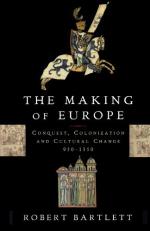|
This section contains 688 words (approx. 3 pages at 300 words per page) |

|
Origins. Just as the American colonies experienced an early eighteenth-century revival, the so-called Great Awakening, European Christians experienced a fervent form of religious experience known as Pietism, which had its origins in the late seventeenth century and continued well into the eighteenth. Characterized less by religious dogma or sacramentalism than by heartfelt devotion, ethical purity, and charitable activity, this movement can be traced back to evangelical Lutherans Philipp Jacob Spener (1635— 1705) and August Hermann Francke (1663-1727). Another major proponent of Pietism was Count Nikolaus Ludwig von Zinzendorf (1700—1760), a Pious German nobleman. In the early eighteenth century he befriended a group of persecuted religious refugees, the Unitas Fratrum (Unity of Brethren), who had been forced to flee their native Moravia, and gave them asylum on his lands. Zinzendorf joined their sect and emerged as its bishop in 1737. Though the Moravians embraced central Lutheran doctrines...
|
This section contains 688 words (approx. 3 pages at 300 words per page) |

|




